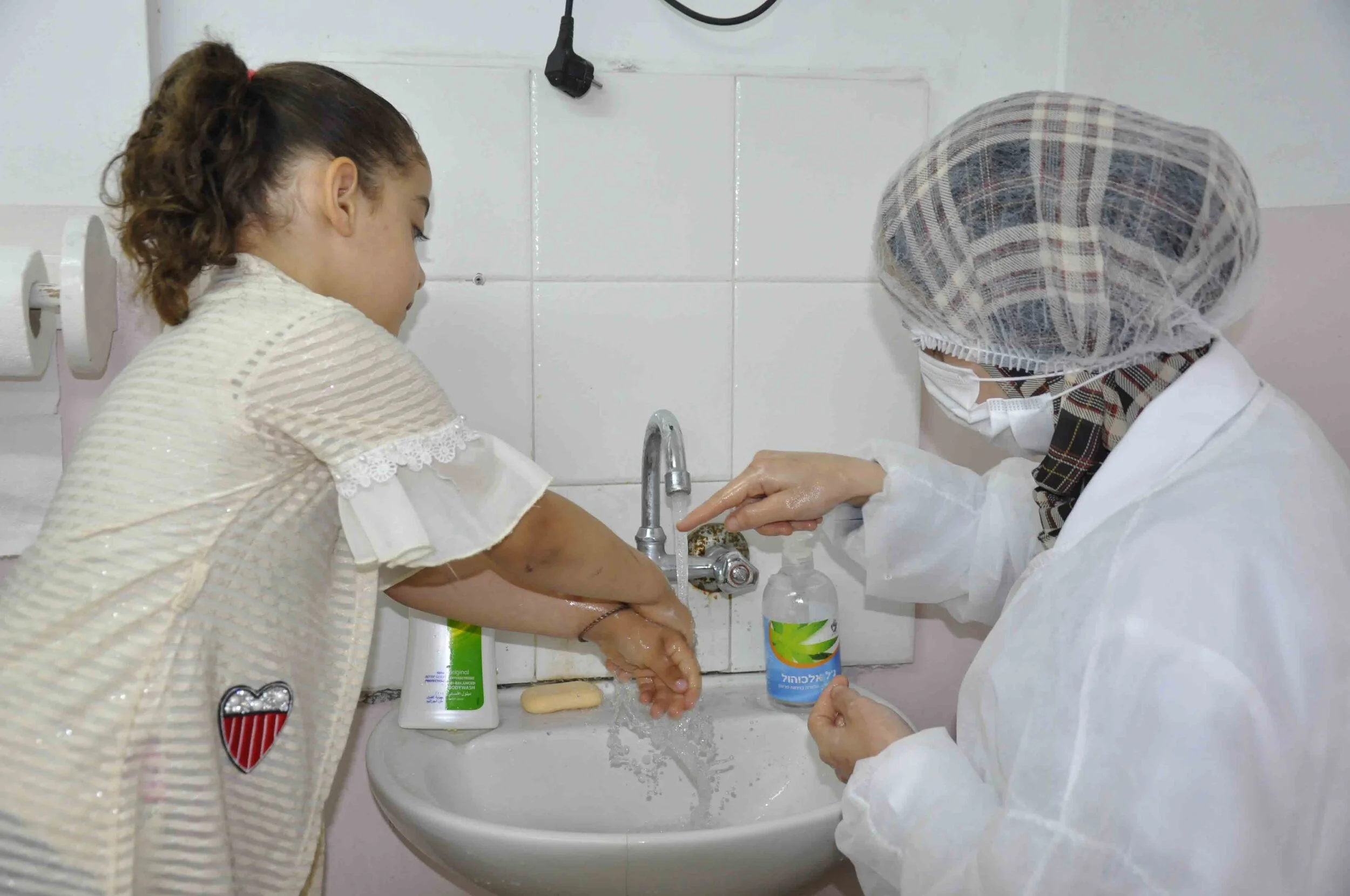Wounded Gaza Under Constant Fear While Humanitarian Aid Saves Its Children
Report by The Department of Service to Palestinian Refugees (DSPR) - Holy Land
The impact of Covid-19 on livelihoods and income was harsh, a recently conducted study by WHO shows that only 55% of HHs in Gaza were able to buy essential food items in last 7 days. Moreover, 40 % of young people in Gaza noted that they had experienced hunger in the past month. Also, access to health services has been further restricted; 23% of the respondents in noted that they had not been able to see a healthcare provider because of the pandemic. At the psychosocial front, responses show an increase in depression rates (9.3%) and 10% of adolescents in Gaza are experiencing moderate-to-severe anxiety. Moreover, the pandemic contributed to an increase in the physical and emotional violence against young people in Gaza.
In light of Gaza's vulnerability, authorities and healthcare and humanitarian workers have focused their efforts on prevention. For several months, these efforts have spared Gaza the worst of the coronavirus. However, Gazans not only face grave and direct risks resulting from further exposure to COVID-19, but from the virus' economic shocks that could dramatically impact their already limited access to critical supplies and services.
Eleven days of Israeli bombardment on the besieged enclave left 256 Palestinians, including 66 children, dead. Nearly 2,000 have been injured. Homes, offices and hospitals have been destroyed.
As the fragile ceasefire appears to hold, those who survived the conflict are once again trying to rebuild their lives. But the damage inflicted during those 11 days was not only physical and material. The mental health of Palestinians in Gaza was also bombarded during those dark days.
Living in fear of the next air attack, the specter of death looming. Losing loved ones and homes. It is hard to imagine how utterly traumatizing their reality has been.
All this turmoil translates to actual mental illness. In Gaza, rates of post-traumatic stress disorder (PTSD) which features disrupted sleep, feeling permanently on edge and easily startled, flashbacks and nightmares of the trauma and emotional numbing – are incredibly high. A 2017 study found 37 percent of the adults living on the Strip qualify for the diagnosis.
As is often the case in these situations, children suffer the most in Palestine. A study conducted in 2020, before the latest conflict, found that 53.5 per cent of children in Gaza were suffering from PTSD. Nearly 90 percent had experienced personal trauma.
NECC (Near East Council of Churches Committee for Refugee Work) response in terms of COVID-19 pandemic.
Reducing waiting time to the minimum, trying to treat each client as quick as possible, meanwhile maintain quality and safety.
Changing the flow of patients in the clinics to reduce the possibilities of infection transmission. For example, beneficiaries with no medical conditions should follow a track that is different from the sick people.
Using the booking system, any patient need medical consultation should book before going to the clinic
Using the triage system and maintain the social distancing of patients.
Provide E- health and psychosocial counselling through free hotlines services.
Rescheduled the clinics activities in the way that beneficiaries with no medical conditions should follow a track that is different from the sick people.
NECC heath staff practiced their work providing health services and treatment for sick people with severe precautions and keep using of safe work practices including wearing face mask, gloves, face shield, and disposable gowns, infection prevention control guidelines and hygiene practices also carried out, to protect their selves and other people contact them.
For TVET program, NECC resumed to run all TVET departments as usual with compliance with precautions and full commitment to preventive measures and procedures including i.e., keeping distances between students (1.5 m at least), wearing masks and using sterilization and hygienic materials.
In terms of last escalation on Gaza May - 2021 NECC (Near East Council of Churches Committee for Refugee Work) responses were
NECC clinics received a huge number of beneficiaries who seek medical services and provided health services to them.
NECC conducted rapid need assessment for people affected by last escalation on Gaza including house damages.
Also, NECC conducted rapid need assessment to Identifying family needs and priorities, which include: Food and Non-food items, to provide Vouchers for affected families, this project started in August, and will support 500 families from NECC catchments areas, each family will receive voucher of $140 to purchase the needed food, and non-food items, this project supported by CCP -Japan.
NECC psychosocial counsellor contacted the beneficiaries and provide E- counselling in terms of psychosocial support, in addition to giving appointment to Psychosocial beneficiaries.
NECC Started a new emergency project supported by Act for peace targeted children, women, and adolescents attending NECC clinics, and TVET students, the aim of this project is to promote psychosocial status of different vulnerable and traumatized beneficiaries after the last escalation on Gaza.
Started anew psychosocial support project for TVET students supported by MCC, this for six months.
Provide cash relief for vulnerable families of TVET students, $100 for each family, supported by Amos for 100 families of TVET students, and by MCC for 80 families.













